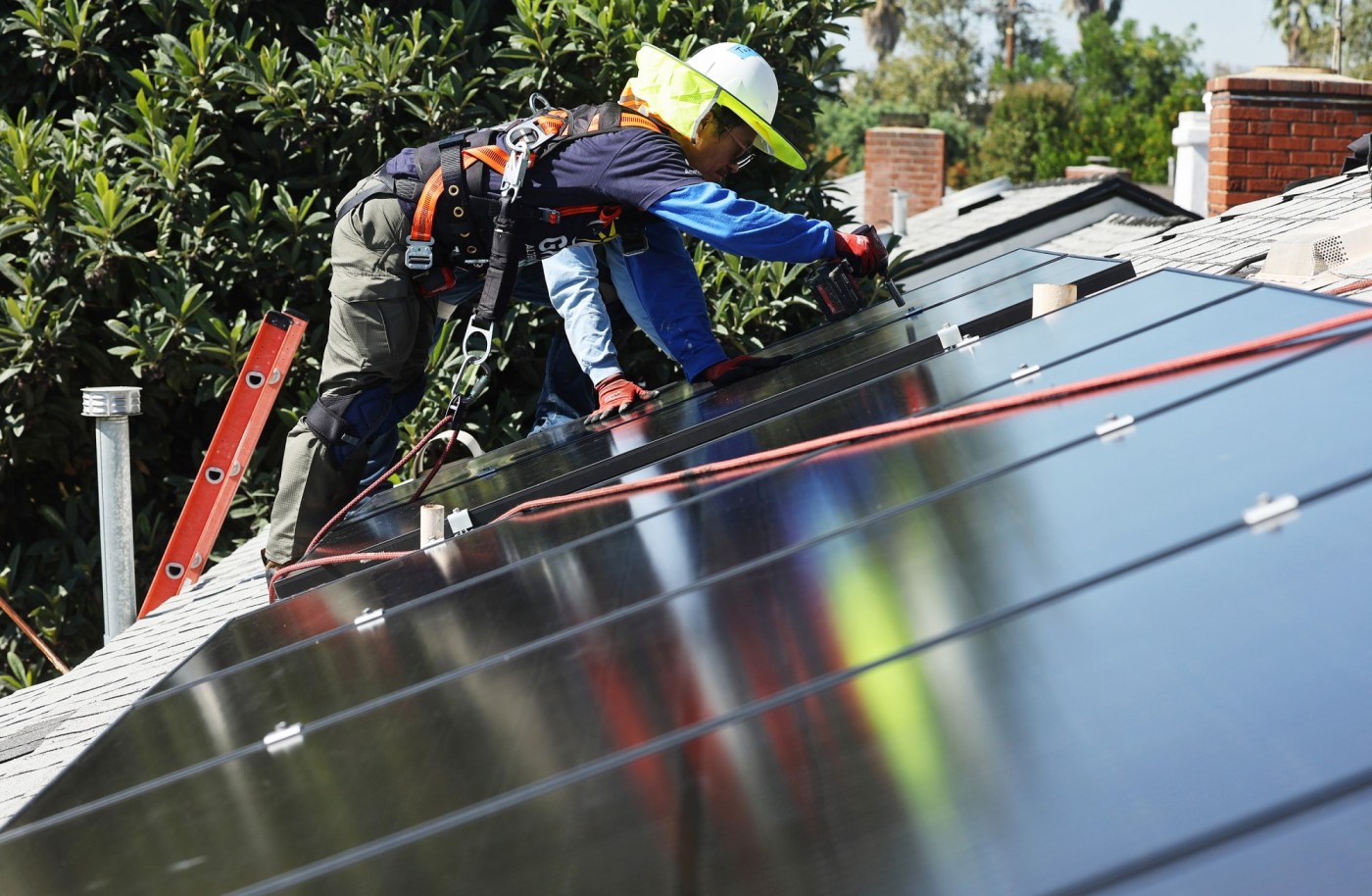
Housing affordability and the need for reliable clean energy are two of the most pressing issues facing California today, which makes it especially baffling why legislators are considering a bill that hurts both goals at the same time: weakening home values for owners and raising utility costs for homeowners and tenants.
Increased success in recent years installing solar at multifamily housing has been encouraging. Tenants in apartment buildings need help stabilizing energy costs. The solar that has been installed for them is a great achievement. However, the State Legislature is considering a bill written by Assemblymember Lisa Calderon — a Whittier Democrat and former executive at the parent company of for-profit energy giant Southern California Edison — that would cause those savings to vanish for many tenants.
If passed, Calderon’s bill, AB 942, would suppress the expansion of affordable housing and cause a troubling loss of trust in state commitments.
For years, California encouraged people to invest in rooftop solar through clear state-mandated contracts. These agreements guaranteed that anyone who installed solar panels before April 2023 would receive fair compensation for the energy they produce for a full 20 years — even if they sold their property. These terms are explicitly outlined in contracts signed by solar adopters and utilities.
This 20-year promise gave property owners the confidence to take out long-term loans or leases to finance their solar systems, knowing their investment would retain value and transfer to future owners.
AB 942 would break this promise.
Related Articles
Plan to fund beleaguered Bay Area transit agencies in 2026 faces political headwinds
Opinion: State bill letting cities profit from stolen carts could cost customers
California to examine its Amazon oil ties following pleas from Indigenous leaders from Ecuador
Walters: California schools need leaders’ attention more than money
Philp: California Democrats defend immigrant health care but need a broader agenda
The bill would force any new owner of a solar-equipped property onto a new program that drastically reduces the value of solar energy credits. The result is a solar system that once helped keep energy bills low and added value to an apartment building would suddenly become a financial liability. Buyers would see less benefit from the existing solar panels; sellers would likely be forced to pay off the remainder of their solar loans or leases out of pocket — often at a loss.
Multifamily housing typically changes hands several years after construction. If the solar rules are stripped away, tenants would not get the expected benefits and the property owner that wants to sell would lose money and be less likely to invest in California in the future, right at a time the state needs more investment in housing.
When the state retroactively changes the terms of its own contracts, it sends a chilling message to anyone considering a long-term investment in clean energy or property improvements. If solar contracts can be rewritten after the fact, what’s next? This uncertainty would inevitably slow the adoption of rooftop solar and future improvements, undermine the state’s climate goals and destabilize the market for energy-efficient housing.
Supporters of AB 942 argue that the bill is about fairness for non-solar ratepayers. But the reality is that many solar adopters are middle-class families who stretched their budgets to invest in solar, trusting that the state’s 20-year guarantee would hold. A significant portion of solar households earn less than $100,000 a year; others provide housing to low-income tenants in apartment buildings. These are not wealthy elites but everyday Californians who believed in the promise of affordable, clean energy.
AB 942 goes in the wrong direction, risks making energy less affordable and hurts property values all while raising energy costs, leaving families poorer and with bigger bills each month. It erodes the trust that underpins California’s clean energy leadership and will deter future investment in housing and energy. If we want to help reduce the cost of living, lawmakers must reject AB 942 and honor the commitments that made California’s solar success possible in the first place.
Alfred Twu is secretary of the California Democratic Renters Council. Mark Rhoades is president and CEO of Rhoades Planning Group.